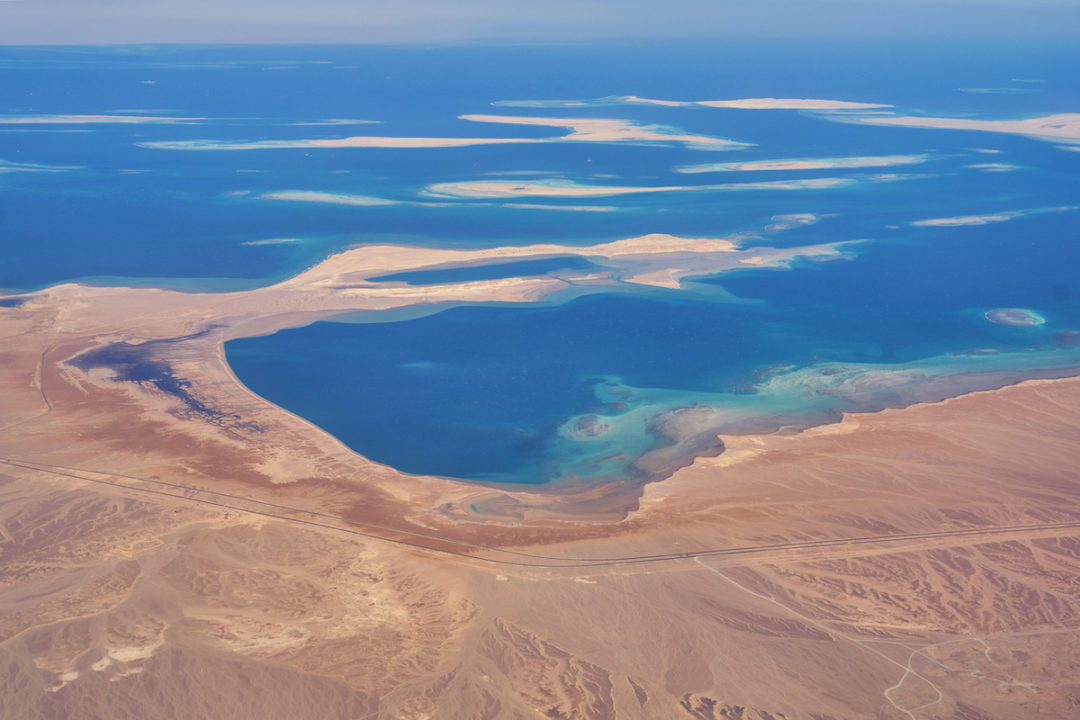
Home » Chinese Ships Get Cheaper Insurance to Navigate Red Sea
Chinese Ships Get Cheaper Insurance to Navigate Red Sea

Photo: iStock.com/Berezko
February 7, 2024
Chinese-owned merchant ships are getting hefty discounts on their insurance when sailing through the Red Sea, another sign of how Houthi attacks in the area are punishing the commercial interests of vessels with ties to the West.
The militants began going after Israeli-linked vessels back in mid-November, before widening their targets to include U.S. and U.K. ships in January when the two nations bombed Yemen in an effort to quell the attacks. The incidents have led to a multi-tiered insurance market in which underwriters differentiate between the carriers they cover.
While the overall picture is mixed, some Chinese-linked vessels have to pay as little as 0.35% of their hull and machinery value to obtain insurance for transit, according to people involved in the market. Most ships are paying somewhere between 0.5% and 0.75% — although that can vary significantly, they said.
The discounts would translate into savings of $150,000 and $400,000 for the transit of a vessel with a hull-and-machinery value of $100 million.
It means the Chinese carriers are gaining another edge in addition to being able to use a shortcut between Asia and Europe in relative safety. Hundreds of ships are simply avoiding the area, sailing thousands of miles around Africa instead. Since the attacks mushroomed, there have been no reports of significant damage to Chinese-owned vessels.
Read more: How Retailers Can Navigate Choppy Supply Chains
The Houthis say they are acting in solidarity with the Gazans amid Israel’s war with Hamas.
Shot Up
Rates for war insurance, a requirement to go through riskier waters, shot up since the Houthis first began their attacks.
After jumping about tenfold, they stabilized in recent weeks as the nature of the risks to shipping in the region becomes clearer, and Western military forces work to degrade the Houthis’ capability.
“The market is reflecting the lower risk profile faced by Chinese- and Hong Kong-connected vessels, as shown in the increased Asian-flagged and connected tonnage transiting the region,” said Munro Anderson, the head of operations at the marine war risk and insurance specialist Vessel Protect. “That said, despite a declaration of safe passage by the Houthis, there are no guarantees that incidents of miscalculation can be avoided.”
Though Chinese ships are seeing discounts compared to most of the market, some vessels with ties to the U.S., U.K. and Israel are having to pay more for coverage.
Read more: Chinese Wind, Solar Capacity to Overtake Coal in 2024
Certain underwriters are still looking to exclude coverage for those vessels, but it is still possible for them to get all the insurance they require, the people involved in the market said.
The fact that some vessels with links to the U.S. and U.K. continue to sail through the region is proof that they are able to get coverage, the people said.
Some ships are continuing to advertise that they aren’t connected with Israel, the U.S. or the U.K.
At least 27 vessels had filled out their destination on digital ship-tracking systems with comments reflecting Chinese ownership, crew or both.
The Houthis told the Russian newspaper Izvestia last month that Chinese and Russian ships would be safe from attack — although that doesn’t extend to the cargo that the vessels transport.
RELATED CONTENT
RELATED VIDEOS
Subscribe to our Daily Newsletter!
Timely, incisive articles delivered directly to your inbox.
Popular Stories

2024 Supply Chain Management Resource Guide: There's Only One Way Off a Burning Platform
VIEW THE LATEST ISSUECase Studies
-
Recycled Tagging Fasteners: Small Changes Make a Big Impact
-

Enhancing High-Value Electronics Shipment Security with Tive's Real-Time Tracking
-

Moving Robots Site-to-Site
-
JLL Finds Perfect Warehouse Location, Leading to $15M Grant for Startup
-
Robots Speed Fulfillment to Help Apparel Company Scale for Growth



